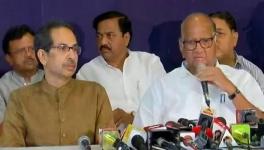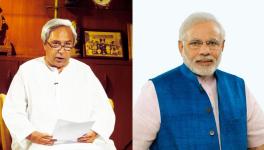Foreign Education Bill: Tall Claims, False Claims
The government is all set to allow foreign universities to set up campuses in India and allow them to repatriate profits from operations here. As per the proposed plans, the Centre is working to make it easy for foreign universities to set up campuses in India in collaboration with local partners. The NITI Aayog has submitted a report to the Prime Minister’s Office (PMO) and Ministry of Human Resource Development (HRD) in favour of inviting foreign universities to set up campuses in India. Last year, Prime Minister Narendra Modi asked NITI Aayog to study all reports regarding setting up of foreign universities and the reasons on why it could not move forward. Governments in the past have made several attempts to enact legislation for entry, operation and regulation of foreign universities in the country. The first was in 1995 when a Bill was introduced but could not go forward. In 2005-06 too, the draft law could not go beyond the Cabinet stage. The last attempt was by UPA-II in 2010 in the shape of the Foreign Educational Institutions Bill, which failed to pass muster in Parliament and lapsed in 2014 since it was opposed by the BJP, Left and Samajwadi Party. One of the reservations on foreign universities operating in India was that they would raise the cost of education, rendering it out of reach for a large part of the population.
To discuss this, NewsClick interviewed Abha Dev Habib, executive council member, Delhi University. According to her the argument that foreign universities coming to India will stop brain drain is not valid and will not stop the phenomenon. Excerpts from the interview.
Rough Transcript:
Pranjal: Hello and welcome to Newsclick. The foreign education bill which was being brought by the UPA2 in 2010 and was rejected in the houses is again making it's way into the country. The incumbent NDA government is trying to introduce it. To discuss the issue we have with us Abha Dev Habib Executive Council Member of the Delhi University. Hello Abha, welcome to Newsclick. So there was a bill, Foreign Education Bill which was brought by UPA in 2010 and the houses rejected it. Now the government is again trying to bring it in and NITI Ayog has recommended it. What's the difference between two bill if there are any?
Abha Dev Habib (ADH): In fact, 2010 was not the first time when a foreign education institution bill was pushed.
The proposal was first brought in in 1995 then in 2005 by UPA1 and in 2010 and now, Narendra Modi has approached NITI Ayog under this campaign of make in India that you look into the ways in which this can be brought in again to look at the various prospects. But in all these earlier times were opposition to the foreign institutions bill on valid grounds.
Pranjal: So there has been a very strong argument that the foreign education bill that students rather than going outside to attain education, it is better that these universities come inside the country and then will also be able to keep a check on brain flow that was going outside. How valid argument you find it?
ADH: It is going to only deepen the crisis in many ways the first thing which want to say but the first thing which you have asked actually this is not going to help brain drain because those who invest money in education and want to study abroad, they also want to go abroad so that they can settle abroad. Education is one of the easiest way of going abroad and settling abroad and only 0.5% probably of the total population which gets education wants to go abroad. So having foreign educational institutions here will actually not stop these people because they are not wanting good education, quality education alone. They are wanting ways of going abroad to settle abroad. So I don't think so. But while this foreign, setting up foreign campuses may deepen crisis is in terms of exodus of good qualified, very experienced teachers from the government institutions to these foreign campuses. This was one of the major concerns of the standing committee of the Parliament of the Rajya Sabha which produced it's report in 2011 that setting up of foreign institutions in the country it may or may not respond to the needs of the country because you have your own socio-economic conditions but there will be a different fee structure there. There will be a different salary structure there and there is a possibility that best of your teachers join these campuses.
Pranjal: So when you talk about the socio-economic conditions and recently we have seen a lot of movements around the issue of Dalit students in the college campuses, so what impact is this foreign education bill going to have? If we even go by the news reports, it is saying that they will be outside the purveiew of the UGC which means closing the door for people from the marginalized section of the society.
ADH: On this I want to say two or three things. Actually if you give a reading to the report of the standing committee of Parliament, Rajya Sabha, it brings out all these issues very nicely. It asks, whether there will be reservations in these foreign institutions and the response that they get from the MHRD is that whatever rules are applicable to our own domestic private sector, these rules will be applicable to the foreign university. So they say because there is no reservations in the private sector, even though the private sector has been growing over the last 20 years there has been no reservations in these private sectors there will be no reservation in the foreign educational institutions. The other thing that NITI Ayog asked a very important thing. Actually, NITI Aayog if you look at the things that they want to look into they want to see how these foreign institutes should be kept outside the ambit of UGC. They want to create single window of giving clearances and also they want to reduce in fact role of all other regulatory bodies also. Be it AICTE whether it is MCI, whether it is Bar Council they want to reduce all that. One more thing that they said that how to provide them an environment where they are academically and administratively independent. On the other hand we see a continuous interference into the educational institutions here we see how IITs are being told to teach Sanskrit, how we were since 2010 or 2009 onwards in fact, first we were forced to semesterise all our programmes, then we were pushed into 4 year undergraduate programme and after NDA comes, they bring relief, they look at the movement against FYUP but within few months they impose choice based credit system. If you really value the academic autonomy of the institutions why you are not ready to give it to your own institutions that is a very important question that I have to ask.
Pranjal: If I am right, there was committee which was set up by the government which recommended dismantling of the UGC and setting up of another commission, NCHAR. So what impact it will have on this recommendations that the UGC may be scrapped and another commission may be set up?
ADH: See, I think the recent reforms only show that we do not really know where we are going. We do not really care where we are going or may be they know their mind. They want to actually set us on trajectory of whatever WTO wants them to do about our educational system It is really unfortunate that we are not really looking at the ground reality. Dismantling UGC will not resolve the issue of higher education. What we really need today and I would like to say that all those who could afford education are sending their children to educaiton sector you want to increase the gross enrollment ratio, you really have to come up with more number of state universities, central universities. There are over 200 state universities and much education happens in the state universities and yet we have not strengthened them. We have not strengthened them in terms of infrastructure, in terms of teachers and so on and so forth. Where has the UGC failed, unless the government comes up with that kind of report I do not understand, how setting up a new institution per se will help rescue the higher education.
Pranjal: The foreign education also talks about the level playing field. The foreign universities will come, the government will provide them with land at minimum rates possible. While the profits that they retain will go to themselves. That will not be invested in the public sector universities. So is it sort of process which is moving towards dismantling of the public sector universities too.
ADH: See on this also, the standing committee report 2011 which was placed before Lok Sabha and Rajya Sabha talks about this issue also. There is an attempt, on NITI Ayog recommendations which have been reported by various newspapers. They are also looking at the ways of creating for the profit institutions. There have been in fact entry of foreign universities was made possible long back. In 2005, there was a regulation brought in by AICTE through which foreign universities could have come in. In fact, there are now 651 universities that are operating. Why do we want a new regulation. I think more than anything else, what the government has been wanting and this thing started during UPA2 also. If we look at the reports of the UPA2 towards the end of their session, they were also proposing that allow profit making in higher education. Just as I said earlier that actually when the standing committee had asked MHRD their opinion about reservation, they said whatever is happening in our domestic private sphere, we can allow only that much to the foreign. In the same manner why the foreign campuses are not coming here because you are not allowing them to make profit and take it away what is important is whatever they will earn, they will plug into the institution here. But they are not satisfied with that. They want to take it away. Now take it away will happen only when you allow profit making in higher education. Our legislation till date makes education into a public good and on paper at least institutions are forced to show that they are not making money. So the attempt right now is actually to change make that as a major thing. But that will have ramifications even for the public funded universities and we have already seen for example IITs have been forced to do a fee hike because if there will be a huge gap between the fees which private institutions are taking, foreign universities are taking and what public funded universities are taking, I don't see people going to these campuses or very handful people will go which will not do the trick for them.
Pranjal: PPP model is already there in various universities.
ADH: Yes, but this thing if you allow profit making in higher education, then this will force your public funded education system to become expensive also. So the gap between the two reduces. Only then, they will benefit.
Pranjal: If we look at this thoroughly and we find if we go to the ancient times and what the government is pursuing and it's parent organisation the idea of Manu Smriti there was exploitation on the issue of caste. A person who belong to the lower caste could not study. Now, it is more becoming a class issue. A person who has money, who is rich can study and who doesn't have money can not.
ADH: You are absolutely right and this is going to create a new kind of stratification, this is going to divide people further and those who are marginalized today are going to get today further marginalized today. The government should forward these proposals only when they have done a thorough discussion by taking various stakeholders into account whether it is Dalit, whether it is women organisations, whether it is Vice Chancellors, Trade Union bodies of educational institutions only then we should move ahead all this will have major impact on women education, on Dalit education and therefore, we I think we should tread very slowly and carefully on this.
Pranjal: This would be my last question. The same BJP when was in opposition opposed the foreign education bill. Now, they are trying to introduce it with this entire branding of make in India while actually the profit is going outside, nothing is happening in India. Do you see it as a measure to also to break the growing students and teachers movement in the country.
ADH: See, the growing students and teachers movement actually point out to the fact that all the reforms which have been brought in over the last ten years are actually anti-people. This struggle is in response to that and I hope that this struggle will take things forward, will move forward and stop the government from taking this anti-people stances and what you have said is very important that whatever UPA 2 was proposing, today we see that the BJP government is moving forward on that agenda and this was bound to happen because both these government do not have different economic policies. As long as they pursue the same economic policies the outcome will be the same. I have over last few years I have placed my faith in the movements whether it is teachers or students today, coming together of these movements brings us this hope.
Pranjal: That's a very positive note to leave on that the movement is the way ahead. Thanks a lot Abha and we will be coming back to you on such issues.
DISCLAIMER: Please note that transcripts for Newsclick are typed from a recording of the program. Newsclick cannot guarantee their complete accuracy.
Get the latest reports & analysis with people's perspective on Protests, movements & deep analytical videos, discussions of the current affairs in your Telegram app. Subscribe to NewsClick's Telegram channel & get Real-Time updates on stories, as they get published on our website.
























